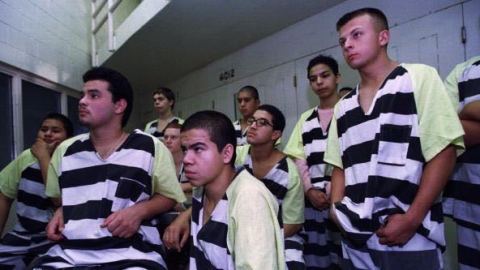Teaching Emotional Awareness Reduces Juvenile Recidivism

Teenage incarceration can be a terrible fate for a young individual. The effects of such an event push kids down a road that’s difficult to come back from. Yet, even though studies have shown prison for youth carries such a heavy life sentence, it will be a while before change comes for these kids. However, researchers may have found a way to make it better and lessen the cycle of crime.
Professor Stephanie Van Goozen, from Cardiff University’s School of Psychology, led the study where they found just two hours of an emotional awareness course might help reduce the seriousness of future crimes. Six months following the completion of the program, researchers noted a 44 percent drop in the seriousness of offenses.
The course was designed to help youth who had committed offenses multiple times. The researchers believed that some of these youth may have difficulties perceiving emotions as a result of antisocial behavior. They wanted to see if a course could help the offenders feel more empathy as a way to reduce aggression.
The study consisted of 50 juvenile offenders (with an average age of 16) from the Cardiff and Vale of Glamorgan Youth Offending Services (YOS). The group was split into a control group (no emotion awareness training) and an intervention group of 24 youths. The intervention group was matched in age, socioeconomic status, IQ, and criminal history.
Those that were part of the intervention group saw a significant drop in their offenses. On a scale from 1 to 8 (one being public order offense and 8 being murder), the group averaged a 2.08 when their previous score before they took the course averaged a 3.75.
Van Goozen believes that this kind of training could help potential repeat offenders reduce their aggression.
“Emotion-recognition training could set children on a much more positive path in life — one which doesn’t have to involve serious crime or violence against others, to the benefit of society and themselves.”
Van Goozen said:
“Our findings support our belief that a population of individuals, whose combined offending produces the majority of harm in communities, can be made to behave less aggressively with the knock-on effect of bringing about a significant drop in serious crime.”
In his interview with Big Think, Kwame Anthony Appiah, talks about the harsh conditions criminals are sentenced to: contracting AIDS or tuberculosis, getting raped, and so on. He argues that these people are not sentenced to these punishments — they are sentenced to incarceration.
Read more at EurekAlert!
Photo Credit: Mike Fiala / Getty Contributor





